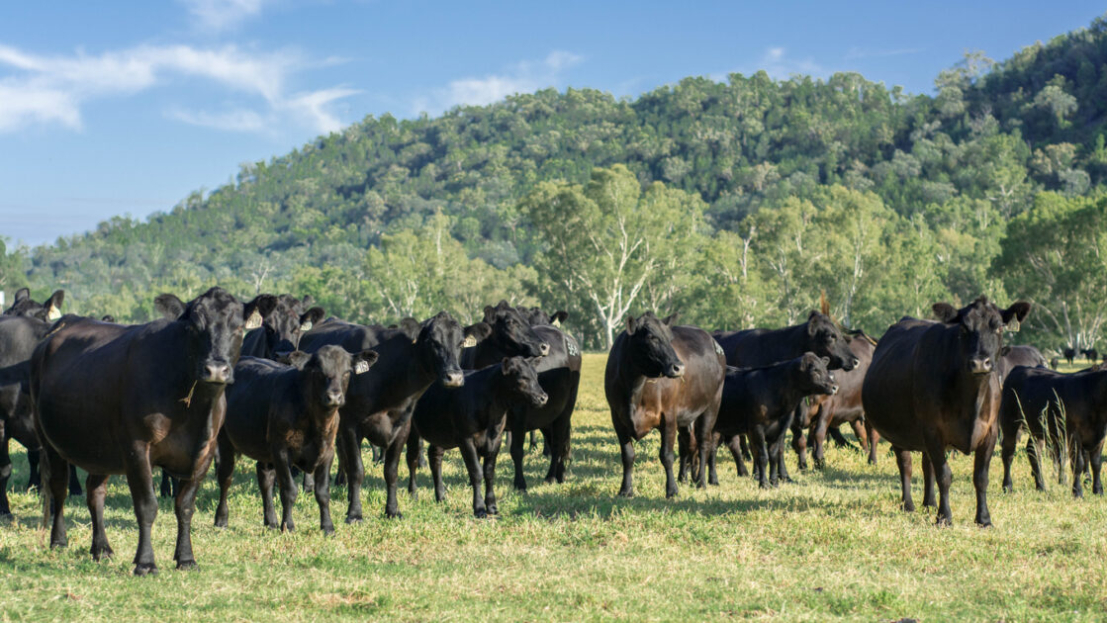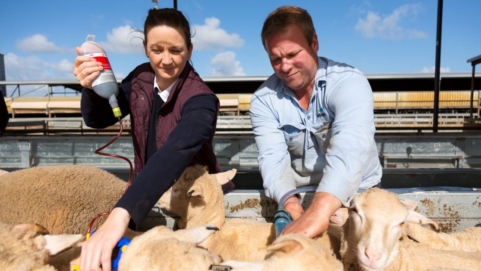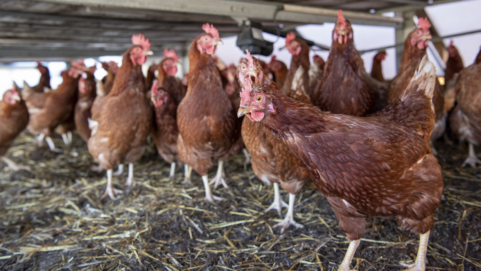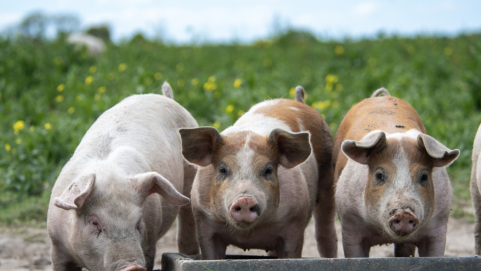World AMR Awareness Week: Prevention the key to Combat Antimicrobial Resistance
- #AMR
- #antibiotics
- Media Releases
- Antimicrobials
- Vaccines
- 18 November 2025

World AMR Awareness Week: Prevention the key to Combat Antimicrobial Resistance
Canberra, ACT – This week (18-24 November) is World Antimicrobial Resistance (AMR) Awareness Week, a global campaign to raise awareness and increase understanding of AMR and to promote global action to tackle the emergence and spread of drug-resistant pathogens. AMR has significant impacts on human and animal health, food production and the environment and is one of the biggest threats to global public health today.
This year’s theme, Act Now: Protect Our Present, Secure Our Future, highlights the need for coordinated global action to combat antimicrobial resistance – a crisis impacting health systems, food security, companion animals, and the environment. Preventative care, including responsible animal health management and vaccination, is a cornerstone of reducing the need for antimicrobials and slowing the spread of AMR.
In 2019, the Animal Health Industry made 25 commitments to address AMR and reduce the need for antibiotics. By 2023, the animal health sector delivered – providing 71 new vaccines, 28 new diagnostic tools, 1.9 million medicines users trained in responsible use, and $US6.3b invested in research and development – all supporting better prevention and reduced antibiotic use in animals.
In September 2024, the UN Political Declaration on Antimicrobial Resistance (AMR) was signed by all countries, providing essential leadership for global action against AMR.
Animal Medicines Australia (AMA) applauds nations for developing a broad consensus for better animal health and disease prevention, alongside actions in humans and the environment, as a core pathway to address AMR in a One Health manner.
On animal health, the declaration has commitments to implement measures to prevent and control infections, including developing national animal vaccination strategies, good husbandry practices and biosecurity.
Antimicrobials (including antibiotics) remain essential tools necessary for a safe, sustainable and ethical livestock industry. As a sector, we need to embrace preventative animal healthcare through vaccination, hygiene and nutrition to preserve antimicrobial effectiveness.
Executive Director of Animal Medicines Australia, Mr Ben Stapley, highlighted efforts to reduce the need for antimicrobials.
Antimicrobials are essential tools for maintaining the health and welfare of both livestock and companion animals. As an industry, we must safeguard the effectiveness of these treatments and ensure they are used responsibly, so they remain available when they are truly needed.
“Ensuring animals are healthy is an essential precondition for animal welfare and safe production systems. The responsible use of antimicrobials is crucial to ensuring these vital medicines remain effective for when they are needed”, Mr. Stapley said.
A report developed by global animal health organisation HealthforAnimals, with the United Nations Food and Agriculture Organisation (UNFAO) – ‘How Prevention Can Reduce the Need for Antibiotics’¹ provides valuable guidance for improving disease prevention, while investment in animal health systems and support for innovation can provide the necessary tools and infrastructure to achieve it. This work can help achieve global AMR goals and improve the lives of animals and humans in the years to come.
Australian farmers have animal welfare front of mind, investing in improved nutrition, internal health, and preventative care that strengthens animals’ natural defences against bacterial disease and reduces the need for antimicrobials. By equipping farmers and health professionals with more accurate and timely data, digital technologies can support reduced antimicrobial needs on farms. Vaccination further supports this by lowering disease risk, improving productivity, and reducing losses. Strong on-farm biosecurity – preventing disease from entering, spreading within, or leaving farms, remains a vital tool in minimising the need for antimicrobials across Australia’s agricultural sector.
Together with vets, farmers and animal caregivers we’re making strong progress. A recent report² shows that between 2015 and 2022, global animal vaccine sales increased by 33.1%, while antibiotic sales declined by 29.9% – clear evidence that preventive healthcare, as well as improved hygiene, nutrition and biosecurity reduces the need for antimicrobial treatments. The shift toward disease prevention is well underway, but continued support is essential to maintain this momentum.
Providing incentives for the animal health sector to invest in innovation, such as increasing data protection for veterinary medicines, is critical for bringing new products to market, improving animal health and welfare and reducing the need to use antimicrobials, while ensuring the production of healthy, safe food and fibre.
The animal health sector is delivering real progress against AMR. Find out how by reading the ‘Roadmap to Reducing the Need for Antibiotics’ Progress report to see how we’re meeting our commitments.
ENDS
______________________
For media inquiries, please contact:
Dr Katie Asplin, Director – Animal Health Policy and Engagement
Tel: +61 2 6257 9022
References
¹ How Prevention Reduces the Need for Antibiotics
² Animal Health and AMR: Livestock Data Analysis – HealthforAnimals


